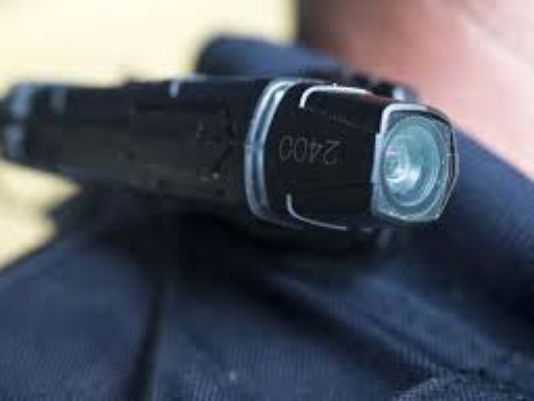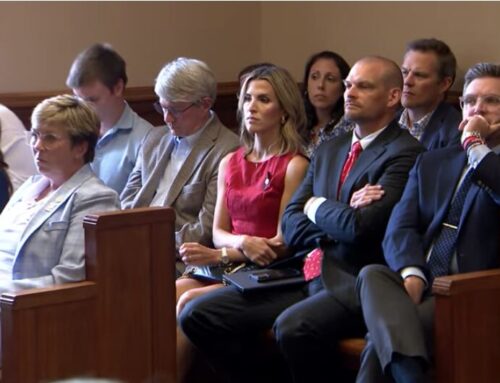Body cam footage from officer-involved shooting inside a Knoxville school may be confidential for a long while
Police body camera footage from a shooting that left a 17-year-old dead inside a Knox County high school is likely to be kept confidential for a while, and it’s possible some of it may be confidential forever based on state laws protecting juveniles and mandating confidentiality of some types of body camera footage.
Anthony J. Thompson Jr., 17, was killed in the shooting. The Tennessee Bureau of Investigation has said that police were responding to reports of a student in the school possibly armed with a gun. A school resource officer was shot and injured, but it was from a bullet from a police weapon, the TBI has said.
Knoxville District Attorney Charme Allen said she will not release the body camera footage that presumably captures what happened in the confrontation until her investigation is concluded. When a police officer shoots someone, an investigation takes place to see if the shooting was justified. Very rarely are criminal charges filed. Allen said she would release all the evidence if a decision is made to not file charges. If charges are filed, the evidence won’t be revealed until the criminal trial, she said.
Here are the laws that govern the confidentiality of public records in this type of situation.
- Investigative exemption. The Tennessee Supreme Court has said that law enforcement records that are relevant to an ongoing investigation may be kept confidential and not released to the public while an investigation is ongoing. The exemption to public records law can last until a case is resolved, if criminal charges are filed, and after all appeals are exhausted. This is a discretionary exemption. Police may release all or parts of information they’ve gathered during an investigation. And records entered as evidence into court are public.
- Body camera footage. Body camera video of a minor, when taken within a school that serves any grades from kindergarten through grade twelve (K-12), is confidential under a state law passed in 2017. The statute, § 10-7-504 (u), says that nothing would prohibit the body camera footage from being redacted and released, as long as the video of the minor remained confidential.
- All investigative records of the Tennessee Bureau of Investigation are confidential forever, but in the case of a TBI investigation into an officer-involved death, the district attorney may release all or part of the record after the “completion of the prosecutorial function of the district attorney.” T.C.A. 38-3-311.
- A photographic or video depiction of a minor victim of a criminal offense is confidential. So if charges are filed against the officer, and the teen is considered a victim, this exemption would make the video confidential. T.C.A. 10-7-504(t). The only way it would become public is if it was entered as evidence in court and was not sealed by a judge. It’s not clear whether the video could be redacted, but presumably, it could be.
In addition, legislation has been passed by the House and by the Senate this year that would make confidential “(a) record of a minor student attending an institution of secondary or elementary education that is created by a school resource or other law enforcement officer, or that is maintained by a law enforcement agency as the result of an incident involving the minor that occurred on school property and did not result in a charge of delinquency.”
The legislation says that the record could be released if the “request is made subject to a court order” but it is not exactly clear what that process would be. At any rate, that legislation may not apply because even if it goes into law in the coming weeks, the Knoxville shooting happened before.
That bill was being carried by state Rep. Ryan Williams and state Sen. Paul Bailey. The House refused to conform to an amendment by the Senate that would have put a sunset date on the amendment.





